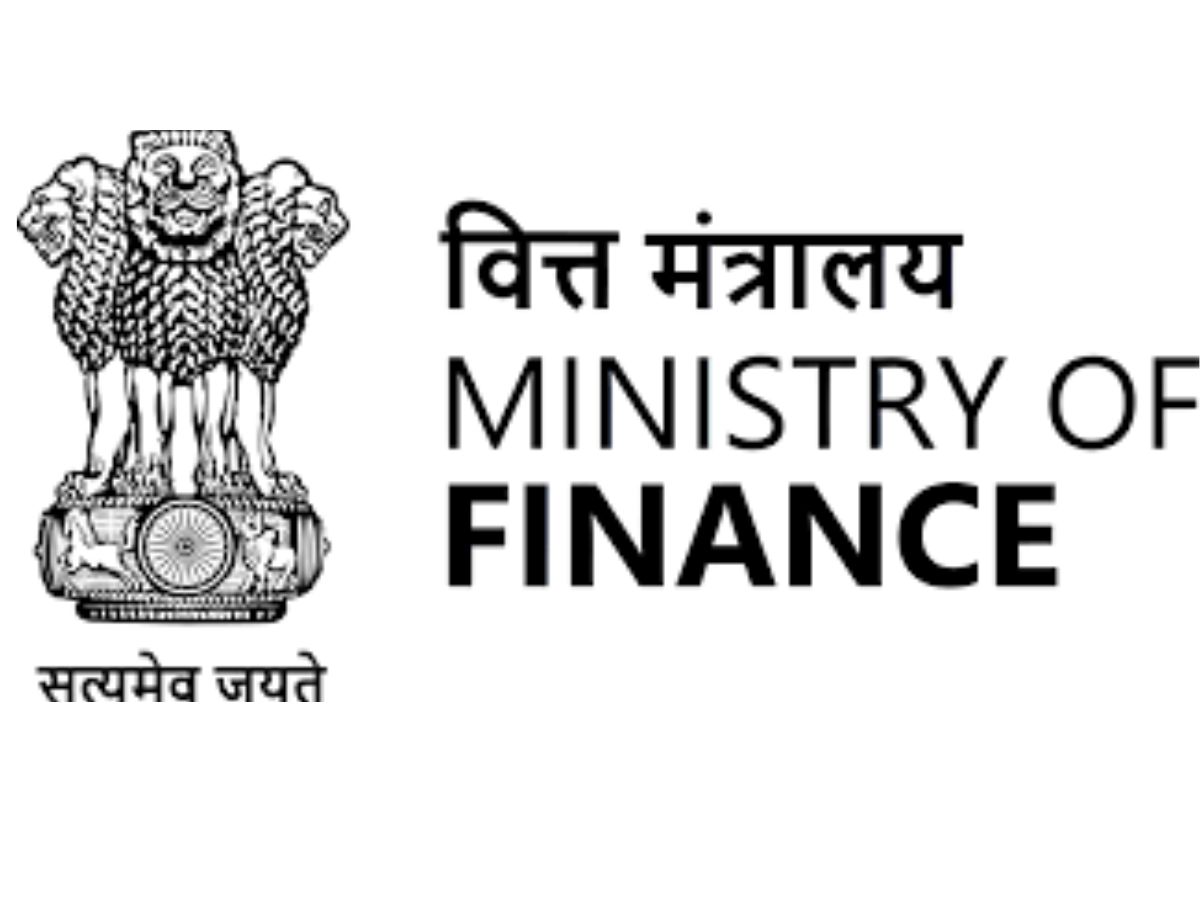Jan Suraksha schemes celebrate 8th anniversary; Finance Minister highlights vision
As we celebrate the 8th anniversaries of the three social security (Jan Suraksha) schemes — Pradhan Mantri Jeevan Jyoti Bima Yojana (PMJJBY), Pradhan Mantri Suraksha Bima Yojana (PMSBY) and Atal Pension Yojana (APY), let us recount how these schemes have enabled affordable insurance etc.

Jan Suraksha schemes celebrate 8th anniversary; Finance Minister highlights vision
- PMJJBY: More than 16 crore Cumulative Enrolments
- PMSBY: More than 34 crore Cumulative Enrolments
- APY: Over 5 Crore subscribers
NEW DELHI- As we celebrate the 8th anniversaries of the three social security (Jan Suraksha) schemes — Pradhan Mantri Jeevan Jyoti Bima Yojana (PMJJBY), Pradhan Mantri Suraksha Bima Yojana (PMSBY) and Atal Pension Yojana (APY), let us recount how these schemes have enabled affordable insurance and security to people (Jan Suraksha), their achievements and salient features.
PMJJBY, PMSBY, and APY were launched by Prime Minister Shri Narendra Modi on 9th May, 2015 from Kolkata, West Bengal.
The three schemes are dedicated to the welfare of the citizens, recognizing the need for securing human life from unforeseen decentralization and financial uncertainties. In order to ensure that the people from the unorganized section of the country are financially secure, the Government launched two insurance schemes —PMJJBY and PMSBY; and also introduced APY to cover the exigencies in old age.
While recalling the vision behind the three Jan Suraksha schemes, Union Finance and Corporate Affairs Minister Smt. Nirmala Sitharaman said, “In the year 2014, the National Mission for Financial Inclusion was launched with the primary objective of ensuring that every citizen in India has access to banking facilities, financial literacy, and social security coverage. Building on this initiative, Prime Minister Shri Narendra Modi introduced three Jan Suraksha schemes on 9th May 2015, with the aim of further promoting and advancing financial inclusion in the country.”
The Union Finance Minister said, “These three social security schemes are devoted to the well-being of citizens, acknowledging the importance of safeguarding human life against unforeseen risks, losses, and financial uncertainties. These schemes aim to provide essential financial services to individuals from underprivileged backgrounds, thereby reducing their financial vulnerability.”
Citing data on the 8th anniversaries of the Jan Suraksha Schemes, Smt. Sitharaman said that 16.2 crores, 34.2 crore, and 5.2 crore enrolments have been done under PMJJBY, PMSBY & APY respectively till 26th April 2023.
On the PMJJBY scheme, the Finance Minister said that it has provided crucial support to 6.64 lakh families who have received claims for Rs. 13,290 crores.
Under the PMSBY scheme, Smt. Sitharaman said that more than 1.15 lakh families have received claims for Rs. 2,302 crore. For both PMJJBY and PMSBY schemes, simplification of the claim process has resulted in speedier settlement of claims, the Finance Minister added.
“It is encouraging to see that these schemes are being implemented through a targeted approach to maximise their reach. Under the leadership of our Prime Minister, Shri Narendra Modi, our government is steadfastly dedicated to ensuring that the advantages of these social security schemes reach every eligible individual across the nation,” Smt. Sitharaman concluded.
On the occasion, Union Minister of State for Finance, Dr Bhagwat Kisanrao Karad said, “The government has adopted a targeted approach for covering people in the rural areas and campaigns are being organized throughout the country at each Gram Panchayat for providing coverage to eligible beneficiaries under the scheme.”
While congratulating all field-level functionaries for making these Jan Suraksha schemes popular, Dr Karad exhorted them to keep up the efforts to further enhance their coverage.
Join PSU Connect on WhatsApp now for quick updates! Whatsapp Channel

As we celebrate the 8th anniversary of Jan Suraksha schemes, let us glance at their features and achievements so far.
Pradhan Mantri Jeevan Jyoti Bima Yojana (PMJJBY)
Scheme: PMJJBY is a one-year life insurance scheme renewable from year to year offering coverage for death due to any reason.
Eligibility: Persons in the age group of 18-50 years having an individual bank or a post office account are entitled to enroll under the scheme. People who join the scheme before completing 50 years of age can continue to have the risk of life covered up to age of 55 years upon payment of the regular premium.
Benefits: Life cover of Rs. 2 Lakh in case of death due to any reason against a premium of Rs. 436/- per annum.
Enrolment: Enrolments under the scheme can be done by visiting the branch/ BC point or website of the bank of the account holder or at the post office in case of post office savings bank account. The premium under the scheme is auto debited every year from the subscriber’s bank account based on a one-time mandate from the account holder. Detailed information about the scheme and the forms (in Hindi, English, and Regional languages) are available on https://jansuraksha.gov.in.
Achievements: As on 26.04.2023, the cumulative enrolments under the scheme have been more than 16.19 crore and an amount of Rs. 13,290.40 crore has been paid for 6,64,520 claims.
2. Pradhan Mantri Suraksha Bima Yojana (PMSBY)
Scheme: PMSBY is a one-year accidental insurance scheme renewable from year to year offering coverage for death or disability due to accident.
Eligibility: Persons in the age group of 18-70 years having an individual bank or a post office account are entitled to enroll under the scheme.
Benefits: Accidental death cum disability cover of Rs.2 lakh (Rs.1 lakh in case of partial disability) for death or disability due to an accident against a premium of Rs.20/- per annum.
Enrolment: Enrolment under the scheme can be done by visiting the branch/ BC point or website of the bank of the account holder or at the post office in case of post office savings bank account. The premium under the scheme is auto debited every year from the subscriber’s bank account based on a one-time mandate from the account holder. Detailed information about the scheme and the forms (in Hindi, English and Regional languages) are available on https://jansuraksha.gov.in.
Achievements: As on 26.04.2023, the cumulative enrolments under the scheme have been more than 34.18 crore and an amount of Rs. 2,302.26 crore has been paid for 1,15,951 claims.
3. Atal Pension Yojana (APY)
Background: The Atal Pension Yojana (APY) was launched to create a universal social security system for all Indians, especially the poor, the under-privileged and the workers in the unorganised sector. It is an initiative of the Government to provide financial security and cover future exigencies for the people in the unorganised sector. APY is administered by Pension Fund Regulatory and Development Authority (PFRDA) under the overall administrative and institutional architecture of the National Pension System (NPS).
Eligibility: APY is open to all bank account holders in the age group of 18 to 40 years who are not income tax payers and the contributions differ, based on pension amount chosen.
Benefits: Subscribers would receive the guaranteed minimum monthly pension of Rs. 1000 or Rs. 2000 or Rs. 3000 or Rs. 4000 or Rs. 5000 after the age of 60 years, based on the contributions made by the subscriber after joining the scheme.
Read Also : NRL collaborates with Assam Government; commits education and holistic developmentDisbursement of the Scheme Benefits: The monthly pension is available to the subscriber, and after him to his spouse and after their death, the pension corpus, as accumulated at age 60 the subscriber, would be returned to the nominee of the subscriber.
In case of premature death of the subscriber (death before 60 years of age), the spouse of the subscriber can continue the contribution to the APY account of the subscriber, for the remaining vesting period, till the original subscriber would have attained the age of 60 years.
Contribution by Central Government: The minimum pension would be guaranteed by the Government, i.e., if the accumulated corpus based on contributions earns a lower than estimated return on investment and is inadequate to provide the minimum guaranteed pension, the Central Government would fund such inadequacy. Alternatively, if the returns on investment are higher, the subscribers would get enhanced pensionary benefits.
Payment frequency: Subscribers can make contributions to APY on a monthly/quarterly/half-yearly basis.
Withdrawal from the Scheme: Subscribers can voluntarily exit from APY subject to certain conditions, on deduction of Government co-contribution and return/interest thereon.
Achievements: As of 27.04.2023 more than 5 crore individuals have subscribed to the scheme.
Read Also : SECL CMD Harish Duhan aimed at strategic planning for FY 25-26